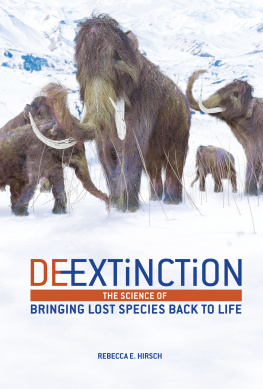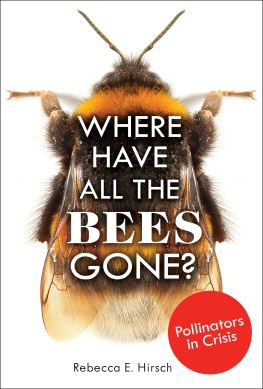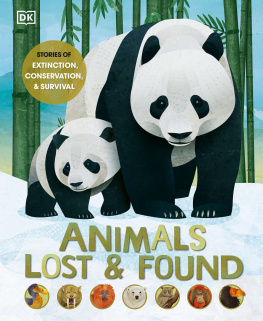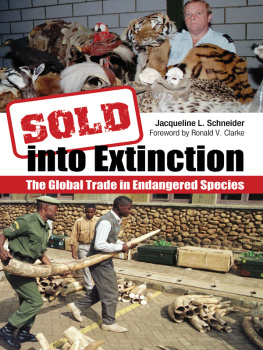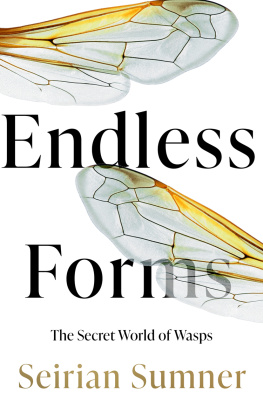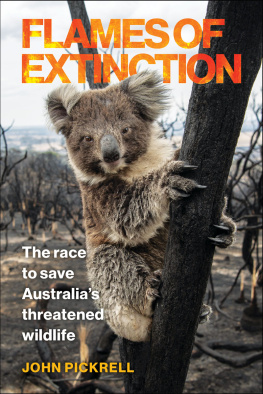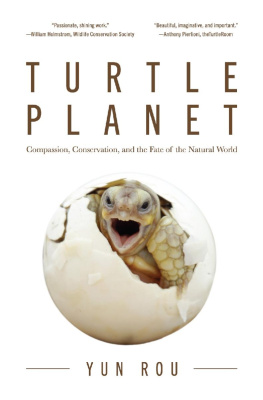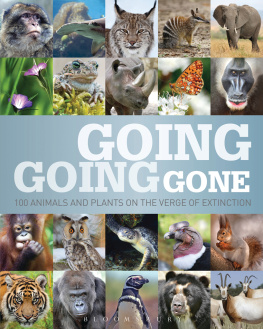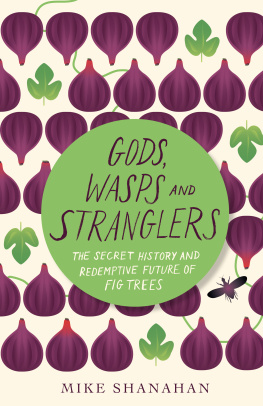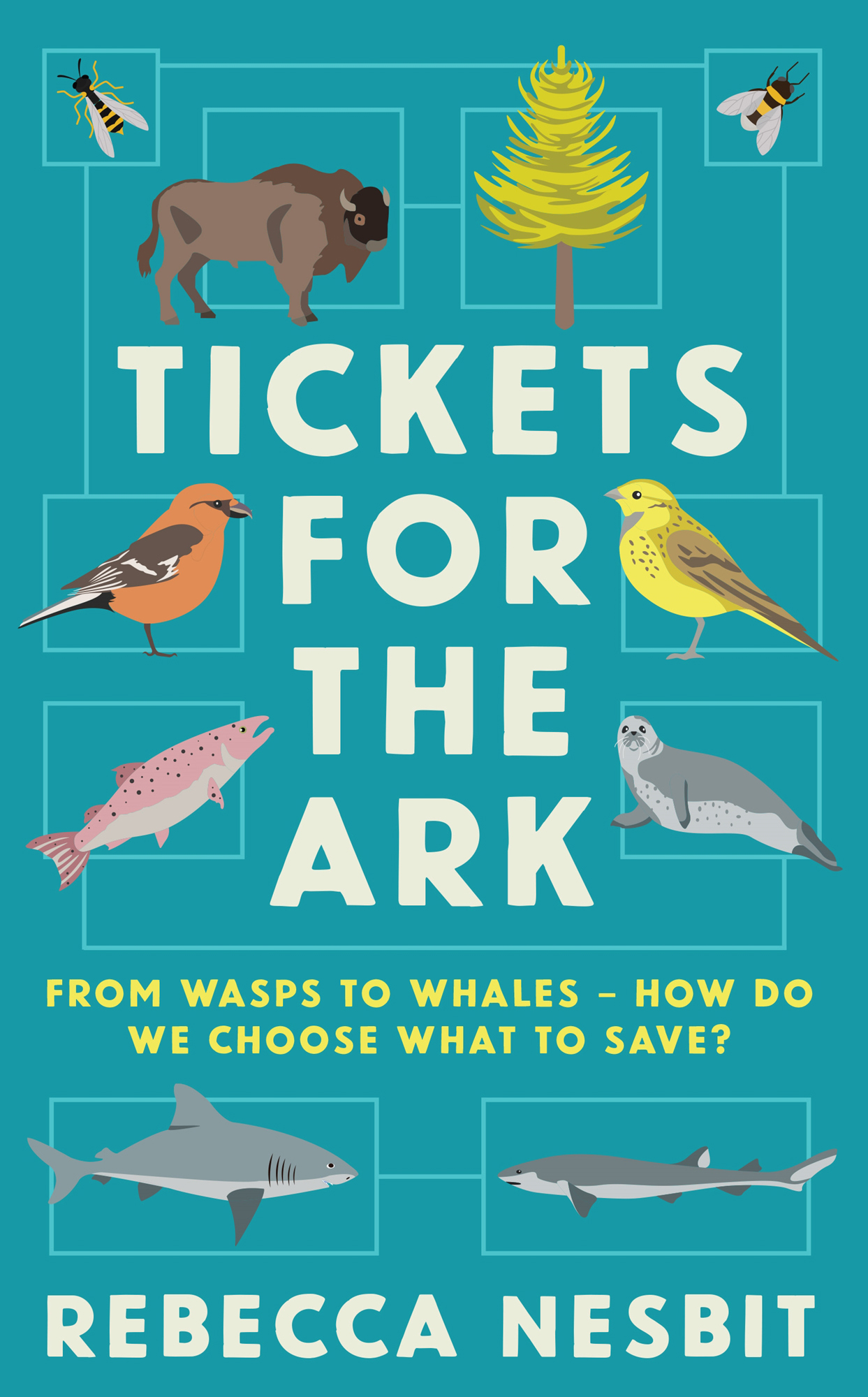Contents
Guide
TICKETS FOR THE ARK
FROM WASPS TO WHALES HOW DO WE CHOOSE WHAT TO SAVE?
TICKETS FOR THE ARK
FROM WASPS TO WHALES HOW DO WE CHOOSE WHAT TO SAVE?
REBECCA NESBIT

First published in Great Britain in 2022 by
Profile Books
29 Cloth Fair, Barbican, London EC1A 7JQ.
www.profilebooks.com
1 3 5 7 9 10 8 6 4 2
Typeset in Adobe Garamond Pro and LL Rubber Grotesque to a design by Henry Iles.
Copyright Rebecca Nesbit 2022
The moral right of the author has been asserted.
All rights reserved. Without limiting the rights under copyright reserved above, no part of this publication may be reproduced, stored or introduced into a retrieval system, or transmitted, in any form or by any means (electronic, mechanical, photocopying, recording or otherwise), without the prior written permission of both the copyright owner and the publisher of this book.
A CIP catalogue record for this book is available from the British Library.
ISBN 978-1788167079
eISBN 978-1782838067
The author would like to acknowledge assistance from the British Ecological Society

Printed and bound in Great Britain by Clays Ltd, Elcograf S.p.A. on Forest Stewardship Council (mixed sources) certified paper.

INTRODUCTION
WHY PROTECT NATURE?
Headlines about nature spark strong emotions: coral reefs are destroyed, mountain gorillas bounce back, ringed parakeets are culled. We react with despair and hope to these situations because we want more nature. But rarely do we take a step back and ask why. Why do changes in nature matter? Whats the point of conservation? Does it justify the prices paid by people and animals? Is it ever acceptable to kill wild animals because they live somewhere we find inconvenient?
Even if we feel confident in our answers, a closer look may reveal that our reasoning doesnt stand up to scrutiny. After all, we cant be guided by science alone. Science is vital for ensuring we achieve our objectives, but it is ethical values that need to underpin them. Take honeybees, for example: science can tell us the impact of honeybee declines and what can be done about them, but it cant tell us whether honeybees are the best focus for conservation funds. They are important as pollinators for crops, but their conservation will do nothing to prevent extinctions. Which is more important to us? As we will see, the accepted narrative is not so straightforward.
Questions about what we value in nature shouldnt be solely the domain of experts, either. We are used to having a voice in ethical debates around medical science, such as stem cell research or three-parent IVF. Personal values are as relevant to conservation as they are to medicine we all have a role to play in making decisions. Everyone has values that are relevant for conservation and visions of the world we want to create. The arguments between supporters of salmon and seals in Scotlands Moray Firth, in , reveal how vital it is to hear different voices in that case from the fishing industry, conservationists and tour operators.
All too often we see conservation answers as so startlingly obvious that we dont question them. But we cant simply return to a past state of nature in this age of unprecedented extinction. As the story of the Guam rail louse in shows, some species are gone for good and when we lose a species we lose, too, its impact on the ecosystem. So, as the natural world changes, we need to consider fundamental questions. Are the species we love the best ones to protect? Do all extinctions matter? When should we welcome species in new ranges? Is it ever right to kill wild animals? What sacrifices should we make in the name of conservation?
These are questions we need to answer if conservation is to bring the greatest benefits. The answers will allow us to allocate funds wisely and make laws which are fair and effective. Even if we dont agree on the answers, an understanding of why we hold our beliefs is invaluable when resolving conservation debates. In , we look at a decision obvious to most conservationists culling rats to prevent the extinction of the Floreana mockingbird but one opposed by animal rights advocates. Clear answers allow everyone to negotiate a way forwards.
The stakes are high our current attitude to nature can, literally, lead us towards disaster. This neednt be the outcome: humans can still thrive in a changing world, as can other species. A first step is to address the challenging questions surrounding what we want from conservation questions that are both uniquely modern and rooted in ancient mythology. The flood story of Noahs Ark has captured imaginations for millennia. There are similarities between the story of the Mesopotamian flood and what is happening now the Earth is changing and, if we dont act, then species will go extinct, maybe even humans. But in the ancient myths, the animals were kind enough to present themselves so they could board the Ark, yet today there are species going extinct without humans even knowing about them.
The resources we dedicate to conservation will never be enough to prevent all extinctions, and we are forced to choose our priorities. We may commit resources to saving one species in the knowledge that others are condemned to extinction. And allocation of limited funds isnt the only way that conservation picks winners and losers. When one species thrives, it can lead to the decline in another. Noahs animals were well behaved they refrained from eating each other or allowing their offspring to take up too much space.
In reality, every single organism must eat and procreate at anothers expense. Conservation is therefore always about making trade-offs, supporting one species at the cost of others. These dilemmas will form the basis of this book. In each chapter we will pit one species against another to tackle the essential questions that conservation must face.

CHAPTER 1
THE MYTH OF WILD NATURE
Bison vs Siberian larch (and human interventions from reefs to pigeons)
It took Nikita Zimov thirty-five days to transport a dozen bison from Denmark to the Siberian Arctic a 13,000-kilometre journey by truck, fording rivers and crossing mountains on stony tracks, then 1,500 kilometres on a barge. It was the realisation of a dream that his father had nurtured for twenty years and is part of their plan to fight global warming by destroying trees a bold vision which has captured the attention of scientists and the public. It has led them through some creative ideas, from crowdsourcing the money to transport the bison (successful) to buying a military tank for clearing trees (less successful).
The Zimovs ultimate ambition is to increase the amount of carbon stored in the Arctic, and they are starting with their patch of land in eastern Russia. Their plan involves some serious ecological engineering and it is inspired by the Arctic landscape as it was before the arrival of humans. Trees such as the Siberian larch were once kept in check by herbivores such as rhinos, steppe bison, elk and the woolly mammoth, but as the last ice age drew to a close these magnificent beasts disappeared from the fossil record. We still havent agreed what caused their extinctions. Was it climate? Was it people? Was it a combination of both? The debate will no doubt continue, but the fact remains that the worlds ecosystems have been dramatically altered by their loss.


